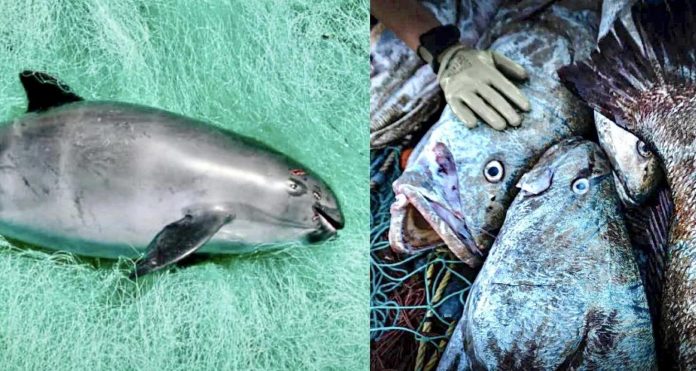
Proposed Formal Investigation Into Mexico’s Rampant Illegal Fishing Of Totoaba In The Protected Vaquita Refuge; Only An Estimated 10 Vaquita Remain In The Wild
You can help all animals and our planet by choosing compassion on your plate and in your glass. #GoVeg
RELATED ARTICLES
Banning Cruelty: New Legislation Aims To Ban Octopus Farming In The U.S.
New bipartisan legislation has just been introduced in the U.S. to ban commercial octopus farming and prohibit imports of farmed octopus from foreign countries.
The...
Outrage In Yellowstone! Grizzly Bear Killed By Wildlife Officials & Left With Head & Paws Cut Off
Photo by: Trisha McFarland / Cowboy State Daily
A photo of a dead grizzly bear with its head and paws cut off has caused an...
Inside Florida’s Illegal Horse Meat Trade: Undercover Footage Shows Racehorse Being Shot & Butchered
A heart-wrenching discovery of illegal horse slaughter has emerged, with video footage exposing the tragic killing of a racehorse named 'Funny Biz,' who was...
Popular stories
News
Chris Hemsworth & Wife Elsa Pataky Help Release Tasmanian Devils Back To Mainland Australia For The First Time In 3,000 Years
Photos By: WildArk
For the first time in 3,000 years, the Tasmanian devil is back in the wild on mainland Australia, a historic moment that...
News
Trial Begins Today For The Controversial Case Against DXE’s Wayne Hsiung & Paul Darwin Picklesimer Who Rescued Two Sick Piglets From Slaughter
Over 100 supporters have shown up in Washington County, Utah, for day one of what animal advocates say could be a landmark case to establish...
News
Breaking! Outrage Ensues After 20 Yellowstone Wolves That Roamed Outside Of The National Park Were Reportedly Killed By Hunters
Tragically, twenty gray wolves from Yellowstone National Park have been killed by hunters after leaving the park’s boundaries in recent months.
Fifteen of the wolves were based...


